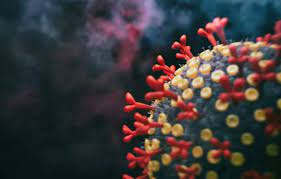
Understanding Covid XBB.1.16: Symptoms of Emerging Arcturus Variant in Adults, Children, and Elderly
Covid variant XBB.1.16, also known as Arcturus, has been dubbed as the ‘variant under monitoring’ by WHO (World Health Organisation) after it was found to be spreading fast in many parts of the world. According to recent WHO data, a total of 712 XBB.1.16 sequences were found in 21 countries. XBB 1.16 is a subvariant of the Omicron variant, which emerged in late 2021 and has since then replaced delta as the dominant variant around the world. Carrying additional spike mutations, Arcturus variant is considered more transmissible and immune-evasive than its predecessors and may escape immunity acquired by previous infections or vaccines. While the symptoms of XBB.1.16 are not very different from the previous strains and the disease caused by it largely remains mild, in case of vulnerable population like children and elderly, it can cause slightly different symptoms. (Also read: All about XBB.1.16, new Omicron variant behind India’s Covid-19 spike, from symptoms to risk factors)
What is XBB.1.16 or Arcturus?
“XBB.1.16 variant, a sub-lineage of Omicron variant, is believed to be the cause of recent concerning surge in number of Covid cases. According to available reports based on genome sequencing, XBB 1.16 has few additional spike mutations. As per the available data, it seems to more transmissible and immune evasive, i.e. causing infections in patients with pre-existing natural or vaccine induced immunity,” says Dr Rohit Kumar Garg, Consultant, Department of Infectious Diseases, Amrita Hospital, Faridabad.
Common symptoms of XBB.1.16 or Arcturus in adults
Experts say the loss of taste and smell seen in the days of spread of Delta variant is uncommon now while symptoms like fever, sore throat, running nose, body ache, diarrhoea, fatigue are more common in Covid patients.
“The symptoms of XBB 1.16 are not much different from previous variants. Some of the common symptoms in adults include fever, sore throat, running nose, cough, body ache, myalgia, fatigue, diarrhoea. Symptoms due to shortness of breath, low oxygen saturation, respiratory distress can be seen in patients who develop severe illness,” says Dr Garg.
“Infected adults may experience symptoms like fever, cough, cold, nasal discharge/running nose, blocked nose, sneezing, soreness and irritation in throat, scratchy throat, change of voice/hoarse voice, shortness of breath, headache, body aches, fatigue, nausea, diarrhoea, chest pain. Loss of taste and smell as seen with Delta variant of Covid-19 is not much seen now,” says Dr Gurmeet Singh Chabbra, Director- Pulmonology, Marengo Asia Hospitals, Faridabad.
Symptoms of XBB.1.16 or Arcturus in children
Children in addition to sore throat, runny nose, blocked nose may have conjunctivitis or pink eye in this current surge of Covid infections.
“XBB.1.16 variant symptoms reported in children are high fever, cough, itchy conjunctivitis — or pinkeye — without pus, but with ‘sticky eyes’. Scratchy throat also leading to difficulty in swallowing, running nose, blocked nose seems to be more common symptoms in current Covid variant,” says Dr Chabbra.
“In cases of children, an additional symptom i.e., an itchy, pink eye (conjunctivitis) has been noted amongst others,” says Dr Garg.
“XBB covid in children has behaved like any other viral infection. Symptoms are typically indistinguishable from flu-like illness. Children get secondarily affected after someone in the family is infected with Covid. The treatment is aimed at maintaining hydration, giving paracetamol, multivitamins and bedrest with quarantine for 5 days. Most of the children recover very well. There is no need to panic with this new strain, especially for children. Children above 12 years should get Covid vaccination done,” says Dr Prashant Udavant, Paediatrician, Neonatologist at Ruby Hall Clinic.
Symptoms of XBB.1.16 or Arcturus in elderly or those with chronic conditions
Elderly patients must be treated keeping in account their risk factors considering they are more at risk to develop severe disease.
“According to available data, there is no increased severity associated with XBB 1.16 infection, compared to recently circulating variants. The nature of diseases is mild illness in majority of the patients infected with XBB 1.16. A very minor proportion of patients, with high-risk conditions such as elderly age group, immunocompromising condition (cancer, HIV, steroids etc), comorbid conditions such as diabetes, cardiovascular conditions, respiratory conditions etc, have been noted to develop severe disease,” says Dr Garg.
“Symptoms in elderly are usually the same as in an adult. But elderly is more prone to develop severe disease on account of their age-related immunosenescence (age related dysfunction of immune system) and associated co-morbid conditions rendering them prone to a more prolonged suffering and death,” says Dr Chabbra.
“Elderly may have a relatively lower temperature on presentation than an adult as mean body temperature decreases with age. As per IDSA modification of temperature of 99-degree Fahrenheit measured twice or single oral temperature of more than 100-degree Fahrenheit or incremental increase of 2-degree Fahrenheit from base line should be considered as definition of fever in elderly,” as per Dr Chabbra.
“Elderly, especially those over 85 years of age, are more likely to present with delirium and asthenia. It may be difficult to differentiate acute cough and shortness of breath in elderly patients with chronic lung disease,” adds Dr Chabbra.
Prevention tips for XBB.1.16
Dr Chabbra says people should wear triple-layered masks, take care of hand hygiene and follow social distancing measures. According to the expert, vaccination may prevent hospitalisation and severe disease in those with risk factors of severe disease.
“Avoid venturing outside in crowded areas unless necessary. Avoid touching your nose, eyes and mouth.
Isolate yourself immediately if symptoms appear and contact your doctor for further advise. Take adequate rest, maintain hydration, take healthy diet, fruits etc if you have been diagnosed with Covid. You may need multivitamins if found deficient. Your doctor may advise changes in treatment if you are on treatment for some chronic disease. You should monitor your oxygen saturation via pulse oximeter, pulse rate, respiratory rate and inform your doctor accordingly,” says Dr Chabbra.
“Amidst the resurgence of Covid cases and the looming threat of seasonal flu, we must not succumb to fear, but instead empower ourselves with knowledge and take necessary precautions. Influenza symptoms tend to manifest for a brief period of less than a week, with peak intensity lasting 1-2 days. To alleviate these symptoms, the recommended course of action is to administer paracetamol while avoiding antibiotics. Also, patients with comorbidities or underlying health conditions must seek professional assistance. Furthermore, to minimise the likelihood of contracting seasonal infections, it is imperative that basic hygiene protocols and preventive measures are diligently observed. As we presently have a few patients who are hospitalised with moderate to severe Covid pneumonia, it is vital to enforce Covid appropriate conduct, including the use of face masks and self-isolation in the event of influenza-like symptoms, says Dr Arunesh Kumar, Senior Consultant and Head of Pulmonology /Respiratory Medicine, Paras Health, Gurugram.

